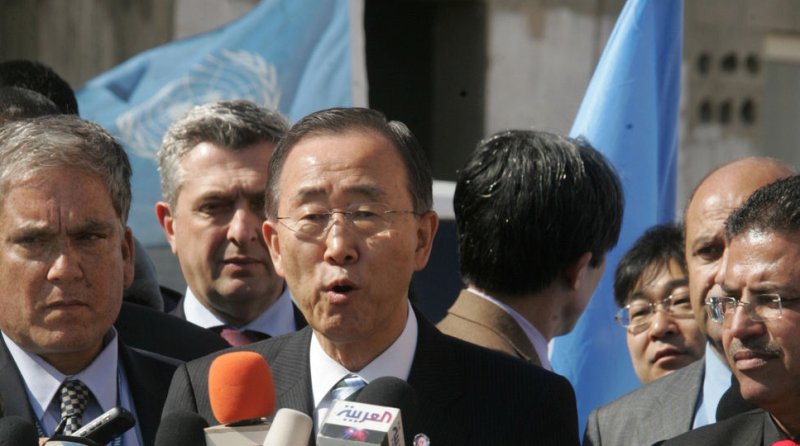"Nuclear issues capture headlines, but conventional arms are killing people every day," U.N. secretary general Ban Ki-moon said at the opening of a U.N. conference. UPI/Abed Rahim Khatib |
License Photo
UNITED NATIONS, July 3 (UPI) -- U.N. Secretary-General Ban Ki-moon called Tuesday on member nations to work toward agreement on a treaty regulating the global conventional arms trade.
Ban's comments came at the opening of the four-week U.N. Conference on the Arms Trade Treaty, the U.N. said in a news release.
He called progress toward a treaty overdue.
"We have made some progress on weapons of mass destruction issues over the years, but the international community has not kept pace on conventional arms," Ban said. "Nuclear issues capture headlines, but conventional arms are killing people every day."
Ban said poorly regulated international arms transfers have fueled civil conflicts, destabilized regions and given power to terrorists and criminal networks.
The New York Times reported the global backers of an agreement, including Amnesty International and Oxfam, were hopeful there would be a treaty in place by the end of the conference.
Amnesty said every minute, one person is killed by armed violence and there are about 639 million small arms and light weapons in the world, with about 8 million more produced every year.
The Times noted the conference comes amid conflicts in Syria and numerous parts of Africa where repressive governments as well as terrorists and warlords get hold of arms.
The newspaper said the five permanent members of the U.N. Security Council -- the United States, Russia, China, Britain and France -- along with Germany, are the largest suppliers of the weapons.
Among the 193 countries participating in the conference differences have emerged on issues including how far regulations should go, whether countries should have to prove human rights credentials before buying weapons and whether small arms and ammunition should be included, along with heavier weapons, the Times said.
"Our common goal is clear: a robust and legally binding Arms Trade Treaty that will have a real impact on the lives of those millions of people suffering from the consequences of armed conflict, repression and armed violence," Ban said. "It is ambitious, but it is achievable."















